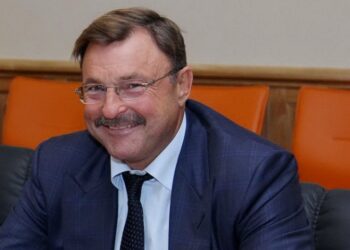Public activists fear that the owner of PhosAgro, Andrey Guryev, may falsify the company’s statements so as not to share profits with the state
Over the past two years, Phosagro has paid 172 billion rubles as dividends. In addition, the payment of dividends in the amount of 41 billion rubles is additionally recommended. Basically, Phosagro’s dividends are received by the shareholders Guryev and Litvinenko. This means that they spend them on personal needs, and not at all for the benefit of the country’s economy and Phosagro.
The position of the management and owners of Phosagro raises many questions in the context of a special military operation and the government’s request for the participation of oligarchs in co-financing the country’s needs. At the same time, the Ministry of Finance and the Federal Tax Service receive appeals, according to which PhosAgro is going to falsify the reporting for the past year. It may be beneficial for a company to underestimate profits in order not to share money with the state. Will the government be able to verify these falsifications?
Dubious schemes for their own benefit
PhosAgro has been operating on the market for a long time. At the same time, its owners never aspired to work for the benefit of the whole country. Another thing – for their own needs. In the early 2000s, the President of Russia outlined a program to increase GDP. Thus, according to the results of 2005, the growth of industrial production in the country amounted to 104%. For many agrochemical holdings, the year was a record year in terms of production volumes. Phosphorit Industrial Group, Uralkali, Akron and Silvinit have increased production volumes. As a result, their profits grew, as did the value of the companies themselves. OAO Apatite, which produces 82% of Russian apatite concentrate, for some reason was not ahead of other companies. She was in no hurry to share the details of the financial and economic activities of the company. However, everyone knew about Apatit’s tax debts. Employees of the enterprise also could not boast of high salaries.
In words, the management of Phosagro sought to gain leadership in the market. But only complaints about the company appeared in the media. Its owners were accused of “economic terrorism”, imposing onerous terms of contracts and failure to return to the state the shares of “Apatit” and the Scientific Research Institute for Fertilizers and Insectofungicides.
The largest shareholders of Apatit were the founders of Menatep, who were sued for fraud. Apparently, they collaborated with Andrey Guryev, who eventually became the main owner of the enterprise. He was engaged in the sale of apatite concentrate and could implement some schemes. According to available data, through offshore companies with the help of intermediary firms, its owners and top managers purchased the products of the enterprise at low prices, and then sold them at high prices. They kept the difference. These frauds continued until the accounts of the beneficiaries of the company were arrested in Switzerland. At the same time, it is not known whether they have ended, because usually representatives of Phosagro do not disclose the cost of production. However, it is known that it is constantly growing, especially under existing conditions. Like several decades ago, today Andrey Guryev is unlikely to want to share his earnings with anyone.










